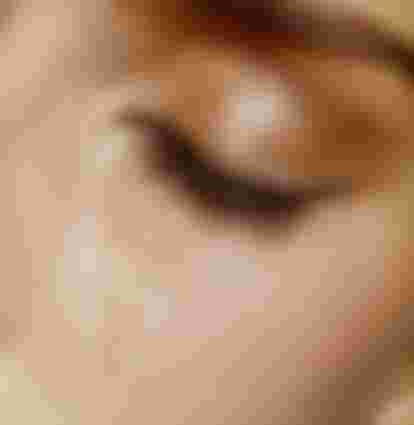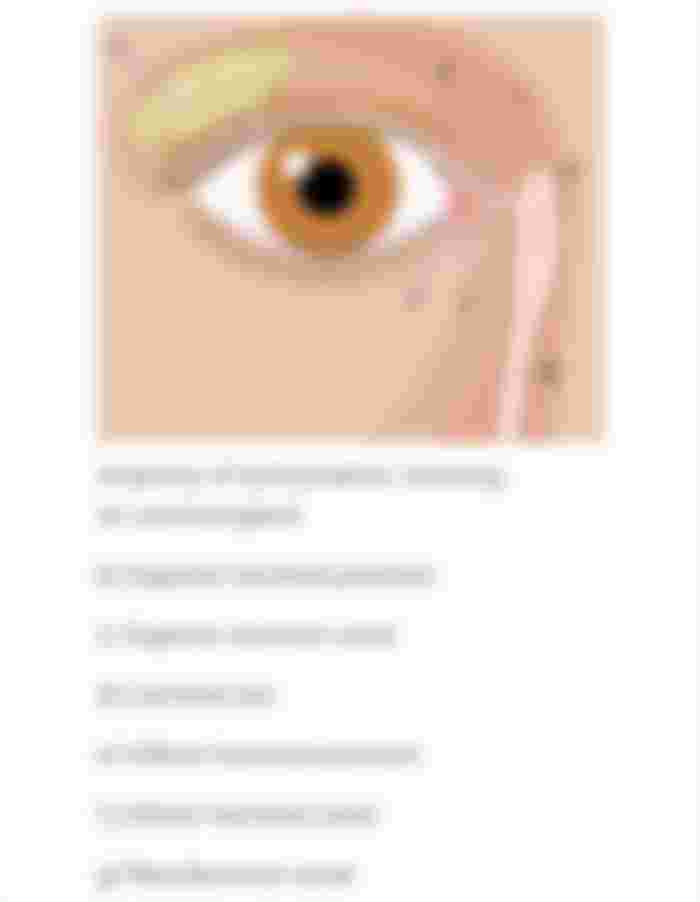
There are thousands of reasons why a person cry, but a basic explanation to this is because it's our natural response to emotions triggered by a feeling of sadness, empathy, surprise, happiness, anger, pain, and grief. It is also our natural response to eye irritation and dust that goes into our eyes. Once we cry, tears roll down on our face, and its an indication that there is some crucial problem that is beyond our capacity to withstand.
How tears are formed?

Our Lacrimal system is responsible for tears production which is located next to our eyeballs. The system consists of a secretory system (responsible for producing tears) and an excretory system (responsible for draining tears).
For example, you broke with your boyfriend/girlfriend, the tears production will begin and will go down to your lacrimal system. Tears will then formed in your lacrimal gland that sits in-between your eyelids and eyeballs. Your eyes will start to blink spontaneously which causes the spreading of tears across your eyes. Your tears will drain-off down to your lacrimal punctum (tears collector produced by lacrimal glands which can be found on the margins of the eyelids) but because you cry so hard during your breakup, your drainage system cannot hold the volume of tears so the excess fluid will now spill over your eyelids down to your cheeks. And you will cry and cry until you moved on from your breakup.
And by the way, there are three types of tears:
Basal Tears - eyes' lubricants that keep it moist and clear of dust. This also fights against bacterial infection and important to ensure good visual acuity.
Reflex Tears - irritants remover (like dust, dirt, pollutants, and other foreign particles that enters our eyes)
Psychic or Emotional Tears - tears that are associated with emotions brought by intense emotional sensations such as joy, anger, pain, grief, fear, and sadness.
Tears only show that we are vulnerable and we are not capable to deal with all problems which provoke our eyes to cry. The same as through with surprising circumstances and occurrences that trigger our emotions which stimulates our tears to roll down our cheeks. However, according to medicine, our brain actually can not always determine the distinction between sad and happy reactions. Our tears are a reflection of unexpressed feelings through different behaviours.
Our tears also reflect our spiritual and psychosocial development. We cry when we are feeling sad due to the loss of a loved one or someone important in our life, it can also because of divorce or breakup. It is our behavioural response to sadness as well as to loneliness, desertion, or rejection. We also cry when we hurt others and this displays our feelings of regret which is a response to our spiritual principle of how we should behave toward people. We cry when we cannot tolerate the pain, for example when we got into an accident, or when we cut our finger or scraped our knee. We even cry when we are carried away by the intense drama we are watching. And crying may also be a symptom of depression that needs further treatment from a professional or even from the loved ones or family members.
For babies, they cry when they are hungry, or if they feel uncomfortable, sick, or in pain. It is also their way to convey something or catch the attention of others. Perhaps, a baby wants to be hugged or cuddled by parents.
But why do we cry when we are happy?

"The hypothalamus, an almond-sized part of our brains, simply responds to the strong, neural signals from the amygdala, which is in charge of registering our emotional reactions. And this response involves the activation of the body’s parasympathetic nervous system, which helps us calm down by releasing the neurotransmitter acetylcholine that leads to tear-production."https://theswaddle.com/why-do-we-cry-when-we-are-happy/
Research shows that crying helps to control intense emotions. These extreme emotions are sometimes unmanageable and overwhelming, even if it is about joy, gratitude, or euphoria, so we cry to release these emotions immediately and initiates the process of hushing.
Crying isn't only a way to suppress tears triggered by different emotions, it also has beneficial factors which are surprisingly good to our body.
It allows us to release our emotions or pain and hopefully feel relieved and comfortable after too much sobbing.
It releases toxins and relieves stress. Crying helps to release stress hormones and other chemicals in our body which could reduce our stress level.
The endorphins and oxytocin in our body which we released when we are in pain enhances our mood and make us feel better.
Crying gives self-enhancing effects which aid the babies to sleep as well as to adults.
Crying can kill bacteria and keeps our eyes clear due to lysozyme fluid in our tears which is said to have powerful antimicrobial properties that help to reduce risks from foreign particles or terror agents that go into our eyes.
Crying can helps improve our vision. The lubricating effect released by our basal tears keeps our eyes moist and prevents from drying out which helps people to see clearly. https://www.medicalnewstoday.com/articles/319631
So when you are crying, always remember that there are benefits of it that are good for our body.
Do you know why we cry when cutting onions?

Tips to avoid crying when cutting onions:
Wear goggles - you may look a bit silly wearing goggles in the kitchen but it will trap the sulfur gas from entering your eyes, therefore, will prevent you fro.m crying while cutting onions.
Freeze onions - place the onions inside your freezer for about 15 minutes before cutting. It might be hard to peel off the skin and cut the onion, but it is working. However, this might not be recommendable to people who don't want to change the flavour of onions affecting the taste of their cooking.
Cut the onion under the ventilation fan - do this technique by placing the cutting board on your stove and turning on the overhead vent. It will help to redirect the eye-irritating gases away from your eyes.
I got the idea of writing this article when I was chopping onions last night. It didn't really stop me from crying and I was curious why we do cry while chopping onions. And then this article was formed. 😊
Lead image from webmd.com




Great article! :-) Thank You and Regards.